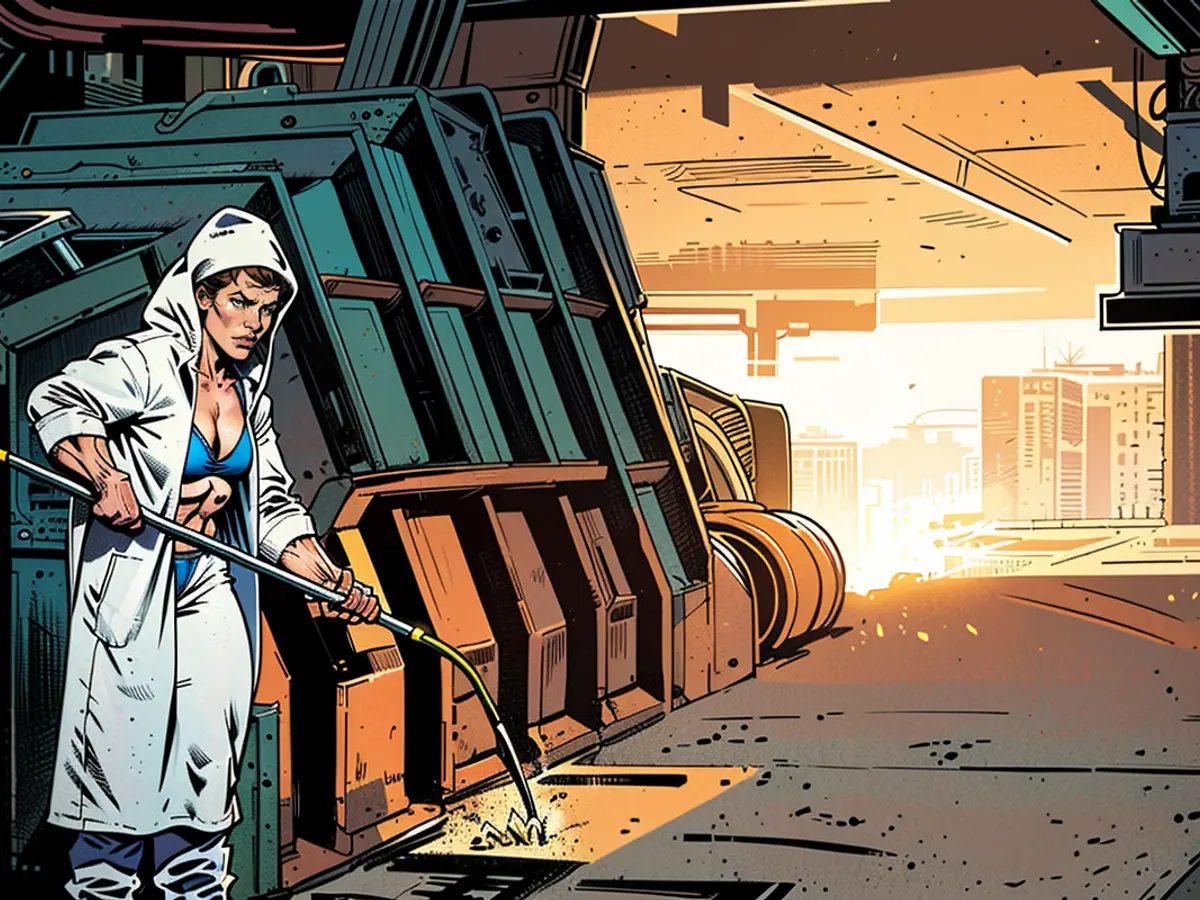Metal manufacturers seek ample supply, yet suppliers refuse to meet the requested demand.
Amidst economic downturn and declining purchasing power among workers, negotiations for over 3.9 million employees in the metal and electrical sector have commenced. The most recent talks in the Bavaria and Baden-Württemberg regions of IG Metall concluded without progress, according to the involved parties. The union seeks a 7% wage hike spanning a twelve-month period for its members due to escalating living costs and the necessity of higher wages as an impetus for consumption growth.
"We've experienced excessive price increases for quite some time," asserted Horst Ott, leader of the Bavarian IG Metall district. He accused employers of over-dramatizing the situation in Germany's leading industrial sector. His counterpart in Baden-Württemberg, Barbara Resch, noted that company performance varies - some struggle, many thrive, while others are flourishing. She urged employers to present a reasonable proposal during the next round of talks scheduled simultaneously with Bavaria on October 15. "We anticipate this negotiation to be challenging," she mentioned.
Gesamtmetall Questions Union's Demand
Criticizing the union's wage demand as extravagant, the industry association Gesamtmetall suggested such a substantial labor cost increase would exacerbate business operations and wouldn't halt the ongoing German deindustrialization. Moreover, the metal and electrical sector is struggling with no foreseeable economic upturn, making closures and job cuts unavoidable in certain areas.
The chief negotiator for the Bavarian Metal and Electrical Industry Association, Angelique Renkhoff-Mücke, echoed the sentiment. "The situation is drastic, and the social partners must assume responsibility," she said. "We're not creating a pessimistic image; we're being straightforward: Economic research institutes predict stagnation in Germany." The metal and electrical sector isn't just experiencing a recession but is in a "real structural crisis." She advocated for a compromise with restraint.
In Baden-Württemberg, where employers initially demanded no wage increase, the head of Südwestmetall, Harald Marquardt, hinted at accepting "moderate wage increases" in later discussions. However, a 7% wage hike was deemed "unreasonably high."
Strike Warnings Likely from Late October
Negotiations will continue in the other eleven districts throughout the upcoming days. The peace obligation ends on October 28, after which strike warnings may be issued on October 29. The union, under the leadership of Christiane Benner, who assumed control since last year, is already preparing for the forthcoming negotiations, including a possible strike. "We are meticulously preparing for talks, even if a strike is necessary," said the union representative from North Rhine-Westphalia, Knut Giesler. "Whether or not we need a strike depends on the employers."
In North Rhine-Westphalia, both parties will meet for their initial debate tomorrow. Giesler also defended the union's position, referencing inflation. "I don't consider our demand to be excessive."
The Commission has expressed its interest in closely monitoring the negotiations due to the potential impact on consumer confidence and the broader economy. Despite Gesamtmetall's criticism, The Commission believes that a reasonable wage increase could stimulate consumption growth and help alleviate rising living costs.








